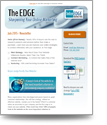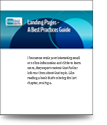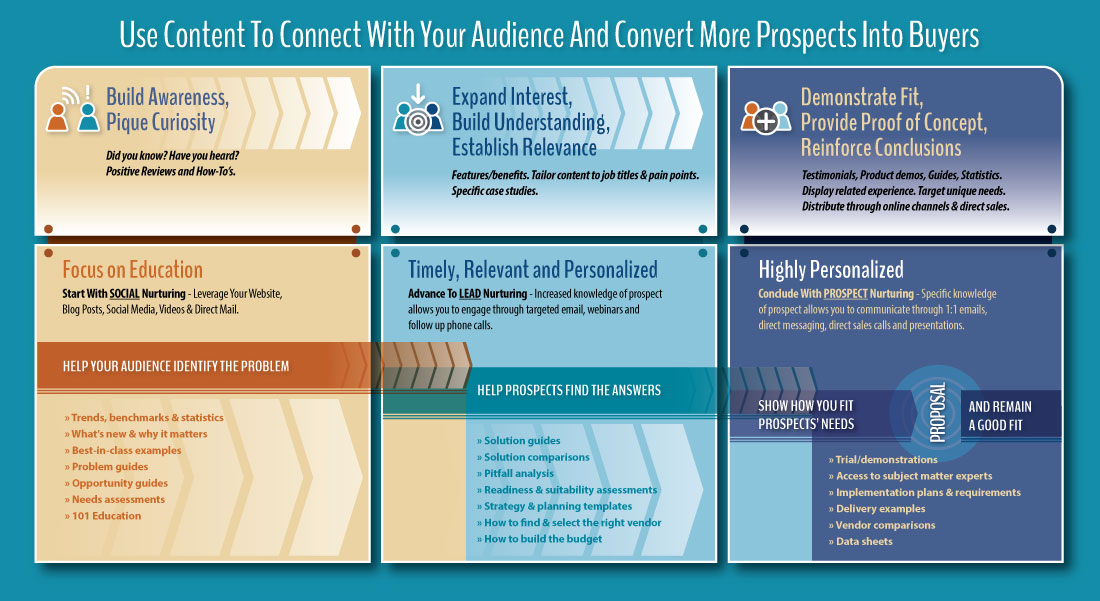 In his book, "The Millionaire Next Door," Thomas J. Stanley remarks that "The majority of millionaires are people you'd never suspect because they don't live flashy lives in big houses with high-status toys abounding."
In his book, "The Millionaire Next Door," Thomas J. Stanley remarks that "The majority of millionaires are people you'd never suspect because they don't live flashy lives in big houses with high-status toys abounding."
Perceptions aren't always reality. But regardless of the potential reality, people will continue to judge based on what they see. It's true in life and it's true in business.
The unlikely millionaire prefers to live under the radar. But, not an effective business. Above all, customers and prospects expect you to make it easy for them to find what they want. And the easiest way for them to access information is online. What your website says about your business can have a profound impact on your business.
What Your Website Says About Your Business
Is what your website says about your business what you really want it to say? Have your design, structure and content decisions engaged your audience or caused inaccurate perceptions that lead prospects astray?
Take a closer look and make sure you don't suffer from these misperceptions.
You Play Hard To Get
Or at least hard to find.
If you don't have a website. Or if it isn't configured effectively, then the customers and prospects that look for you or have a need for your capabilities won't find you. And, with a high percentage of interactions taking place online, that's the equivalent of an unlisted phone number.
Do This Instead
Don't play hard to get. Optimize your website instead. With a few basic steps your site will immediately become more visible. When prospects query your company name (or a close facsimile), your site should show up very high and often first in search results. It's more difficult to rank high for specific product and services or non-branded topics but, with long tail words and local search, it's still possible.
These steps will allow more prospects to become aware of the good things you do.
Oh, and if you don't have a website, it's time to take the plunge.
You Only Care About Yourself
Or in business terms, you are focused on your solutions not your customer's problems.
Capabilities information without a corresponding customer benefit creates negative outcomes. For example, prospects that don't know your industry may have difficulty relating your capabilities to their needs. Customers that know your company may not recognize the added value. If your website is highly self-centered, you'll turn off your audience. Regardless, you'll miss out.
Do This Instead
Build website content with customer needs in mind. Don't force your audience to extrapolate how your capabilities impact their operation. Interview customers and customer facing employees to identify key customer pain points. Develop content that addresses these issues and how your solutions help solve problems.
You Sell Yourself Short
If your website hasn't been updated recently it likely misses capabilities that your customer values and may want to buy from you.
Do This Instead
A website is a living document. Regular updates benefit you, your audience and search engines. But to ensure improvements, develop a plan. One that details ongoing site updates including:
- Type of content
- Publication dates
- Author
- And more
You Are Aloof
Not friendly or forthcoming, distant and detached are traits we connect to people. But that's the exact experience your website will create when it's difficult to navigate.
A website that's hard to navigate reflects poorly on your business. And when this occurs, the first step a user takes is navigating away from your site, potentially to a competitor.
Do This Instead
User Experience is key. Make information that customers look for easy to find and provide:
- A Clear Sense Of What You Offer - make it a priority to provide at least general information about your products and services on your home page and link to more specific details on product pages
- Contact Information - a phone number, street address and even pictures go a long way toward building credibility
- Easy Navigation - if your audience can't find it, they won't know about the services you offer
- Clear Guidance On Your Processes - let customers know, step-by-step, important things such as how to order, shipping details and other common questions
You Don't Care About Your Business
You may run an impeccable operation. Your product quality may be Six Sigma. But to a prospect who doesn't know your company, a poorly designed or dated website tells them you don't care about your business. In fact, they may envision a dark, dingy, dirty facility that produces poor quality products.
Do This Instead
Website form and function technologies advance rapidly making regular updates imperative. Plan regular design improvements. Integrate useful technologies. Hundreds of templates and plug-in tools are available which lowers the programming complexity and cost. If you don't have the in-house skills, work with a digital company to assist.
If you don't like what your website says about your company then it takes:
- Commitment - ensure the people or resources aren't diverted to another "more pressing" project
- Consistency - regular updates and new content developed and prioritized
- Execution - accomplish the plan you develop over the long haul
Effective online connections result in offline connections that translate into revenue!



 Insight Delivered Directly to You Interesting topics, great offers and free marketing tools.
Insight Delivered Directly to You Interesting topics, great offers and free marketing tools.

